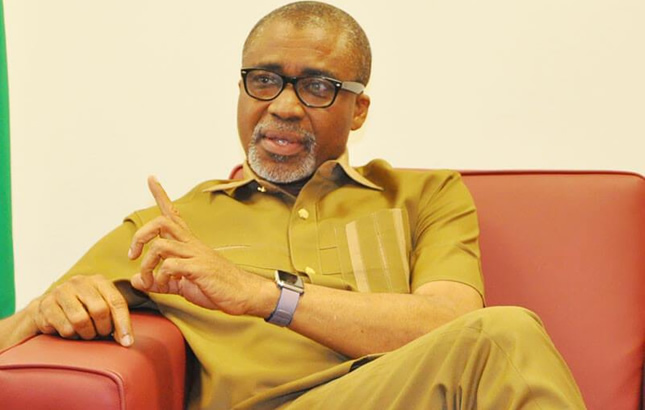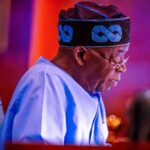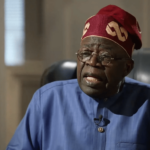In a recent interview with Channels Television, the Senate Minority Leader Enyinnaya Abaribe, stated that the present spate of political challenges of the South East geopolitical zone, which pertain to their perception of being denigrated in the country’s contemporary political processes, has created two types of people there.
According to him, in one vein are those who believe in addressing their political grievances through dialogue with the country’s central authority, (which in open street parlance can be referred to as ‘jaw-jaw’). In another vein are those who have considered same perception of denigration from the angle of unacceptable deprivation, and a contradiction of their supposed status as “fellow Nigerians”, and have ruled out dialogue, preferring to confront the powers that be physically (‘war-war’). Abaribe was reacting in the aftermath of the recent face-off between members of the proscribed IPOB and security forces in Enugu, which unfortunately led to several deaths on both sides of the conflict.
Of a truth, the mainstream of the political class in that zone can be credited with promoting the recourse to dialogue even if they are yet to be seen by a wide cross section of their people as winning in their advocacy. However for the latter group, the political class has failed to actualise the expectations of the people over securing a desired status for them in the affairs of the country. To such therefore the country’s leadership community is simply obdurate as well as irredeemable, hence must be confronted in the language of violence. To them too, it is just a matter of time and endowment with the right complement of logistics, for them to take matters into their own hands. The sporadic flare ups between the security forces and members of the IPOB testify to this ever present resentment and anomie in the zone.
Meanwhile if seen from a wider angle, Abaribe’s picture of the state of affairs in the South East zone remains true of virtually the entire country to wit, the six geo-political zones. In each of the zones there is the same stratification of the mindset of the people, with one school of thought holding on tenaciously to the vision of an indivisible ‘One Nigeria’, while another nurses grudges over the perceived unworkability of that same Nigerian dream of unity in diversity. For instance, in the three zones of North East, North Central and North West the problem of people seeing the country from different perspectives has spawned a major security challenge featuring insurgency and banditry in a manner that translates to open challenge to constituted authority in the land. As at present, some portions of the country in the North East specifically, are under the control of armed Boko Haram insurgents who have lost faith in the country.
In the South East the challenge from the IPOB, who also lost faith in the country, is hardly abating. Just as well, in the South West the six states there are citing rightly or otherwise, the failure of the country’s central security architecture to establish by law, their own police force – Amotekun, as an alternative law enforcement and security agency. Presently, there are questions bordering on fostering smooth working relationship between the two systems – Amotekun and the central Nigeria Police Force (NPF), with the former designated to operate outside the oversight of the NPF. Nothing accentuates the loss of faith in the country by these states, more than Amotekun. The same situation rages in the Niger Delta where the reigning peace is only pyrrhic, as patience of the zone with the Federal government runs thin on a daily basis, with the latter seen as keeping the zone as a conquered territory. In the North Central zone the ongoing pogrom featuring murderous Fulani herdsmen butchering innocent and defenseless people of Southern Kaduna extraction constitutes the real face of the country’s fall into the terrain of perdition.
As things stand, if with all of these developments the country’s leadership community – starting from Aso Rock in Abuja, to the other levels of political leadership across the land still think it is business as usual, then there must be a misreading of the state of affairs by them. But from the look of things, this is exactly what is taking place across the country. It is therefore easy to see that right in the epicenter of the indulgence of misreading the country’s mood, is situated the government’s perceived lack of capacity or (as some even insinuate) unwillingness to address itself to some of these most heinous developments across the country. That these developments directly threaten the fabric of the nation’s unity, accentuates the extant conundrum of letting the country contend avoidably with perhaps its most potent challenge since the Nigerian Civil War.
Seen in context, except there exist some agents of the government who have at the back of their minds the expectation of reaping from a disintegrated Nigeria, there is no other reason for allowing the series of outrages such as the pogrom in Southern Kaduna, the government’s containment efforts against IPOB, and the suppression as well as continued marginalization of the Niger Delta communities among other questionable stresses on the country’s unity, to fester.
In his insightful book ‘The Go Point’ Professor Mike Useem of the Wharton Business School, University of Pennsylvania USA, highlighted how the success or failure of any project depended on knowing when to take specific steps to earn specific dividends. For Nigeria, if the government actually still nurses the lofty dream of ‘One Nigeria’, the ‘Go Time’ for it is now.
Welcome on Board PAP, Colonel Milland Dixon Dikio
During the past week a new Special Adviser to The President on Niger Delta Affairs and Co-ordinator of the Presidential Amnesty Programme (PAP) in the person of Col Dixon was appointed. According to the Special Adviser to the President on Media Garuba Shehu, Colonel Dixon’s appointment is with effect from Agust 21, 2020. Meanwhile his predecessor in office Charles Dokubo was directed to hand over to the most senior officer in the PAP office.
The fact that Dixon’s immediate past three predecessors left rather unceremoniously remains instructive even as it does not mean that his tenure too must hit the hard surface. Just s every organization runs according to the personal style of its leadership, so the days of Dixon at PAP stand to reflect what he brings to the able.
However, one thing stands clear. The seat is a minefield of challenges which even if they do not match the vagaries which an old soldier like him who has put his life severally on the firing line for country and humanity has seen, there are still issues tht will test him to his soul.

 Join Daily Trust WhatsApp Community For Quick Access To News and Happenings Around You.
Join Daily Trust WhatsApp Community For Quick Access To News and Happenings Around You.


